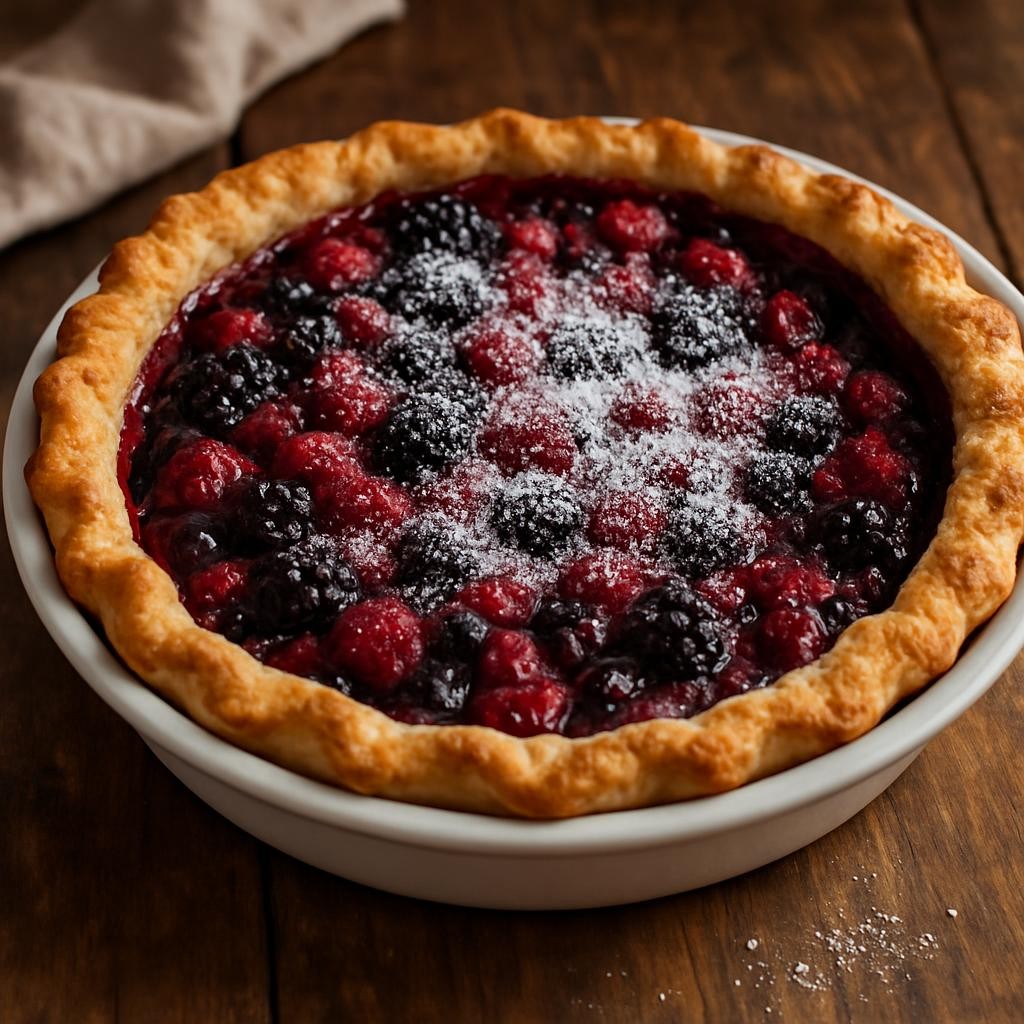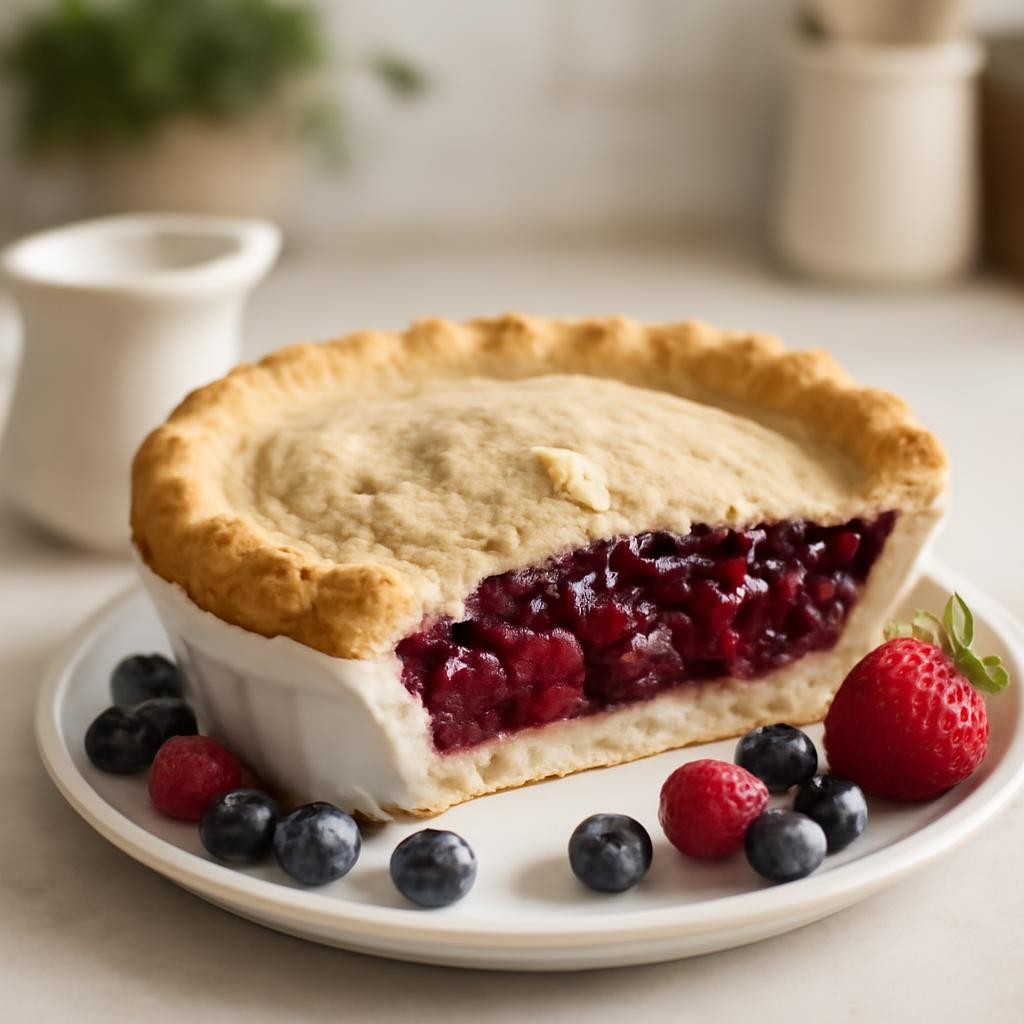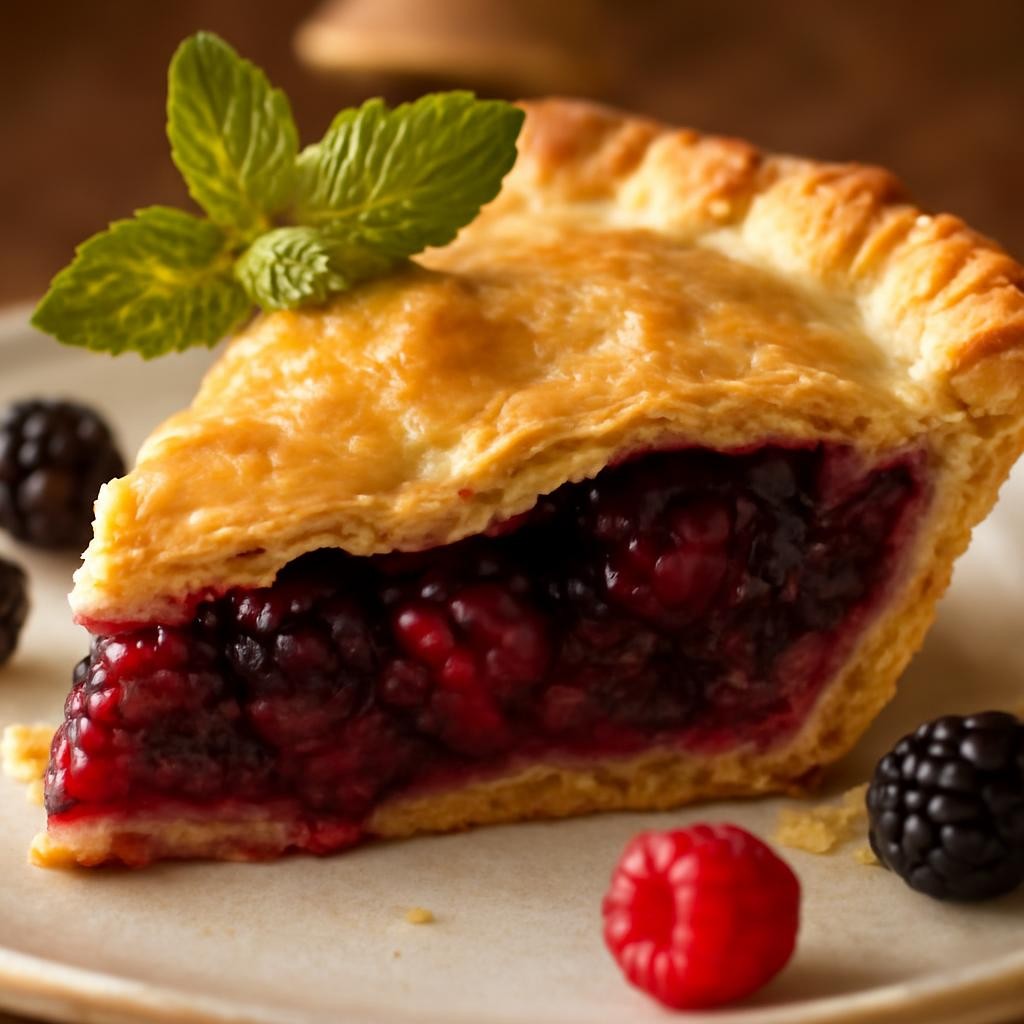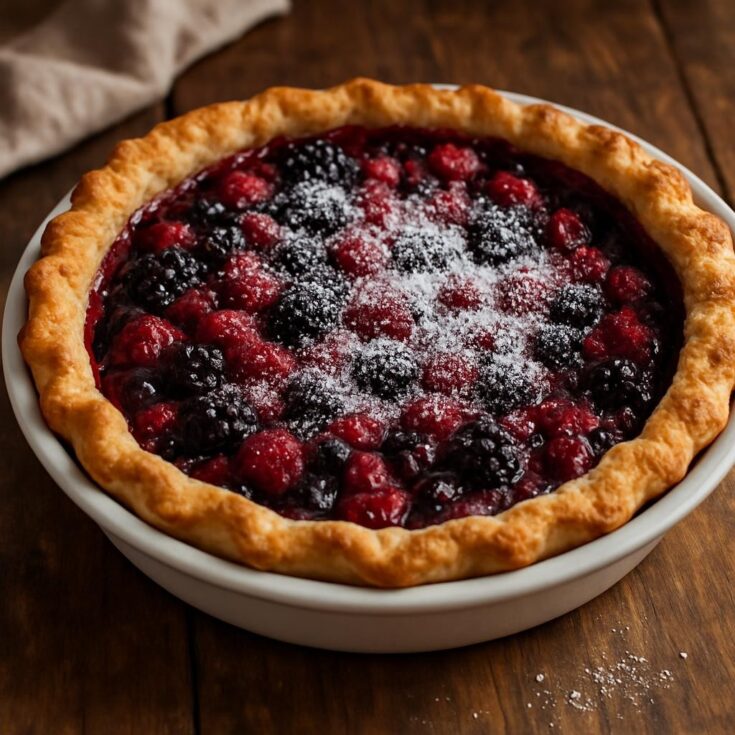This Gluten Free Pie Crust recipe is a game-changer for anyone looking to enjoy a delicious pie without gluten. Whether you’re baking a sweet fruit pie, a savory quiche, or a rich custard tart, this flaky and tender crust will be the perfect foundation. Made with a blend of gluten-free flours and simple ingredients, it offers fantastic flavor and texture that will impress family and friends alike.

Why You Will Love This Recipe
You will absolutely love this gluten-free pie crust because it strikes that perfect balance of being both simple to make and incredibly delicious. It’s crafted from a blend of gluten-free flours that provide a light, flaky texture reminiscent of traditional pie crusts. Plus, it’s versatile enough to complement any filling, making it a staple for all your baking needs. Perfect for those following a gluten-free diet, this crust ensures that no one has to miss out on pie night!
Tips and Tricks
To make this gluten-free pie crust a breeze, here are some handy tips and tricks:
- Chill your ingredients: Use cold butter and cold water to help create a flakier texture.
- Don’t overwork the dough: Mix until just combined to prevent the crust from becoming tough.
- Use a food processor: This can save you time and effort when cutting in the butter and mixing the dough.
- Blind bake for a crispy crust: If your filling is wet, consider blind baking the crust for a few minutes before adding your filling.
Make Ahead Tips
This gluten-free pie crust is perfect for meal prep. You can make the dough in advance and store it in the refrigerator for up to 3 days, or freeze it for up to 3 months. If frozen, allow it to thaw overnight in the refrigerator before rolling it out. You can also pre-bake the crust and store it in an airtight container at room temperature for 2 days or in the freezer for up to a month.

Recipe Variations
Don’t hesitate to get creative with this gluten-free pie crust! Here are some variations you might consider:
- Add herbs: For savory pies, mix in dried herbs like thyme or rosemary to the dough.
- Sweeten it up: If making a dessert pie, add a tablespoon of sugar to the flour mixture for a sweet crust.
- Nut-based option: Substitute part of the flour with almond flour for a nutty flavor and added richness.
- Vegan version: Replace butter with coconut oil or vegan butter to make it dairy-free.
How to Serve
Once your pie crust is baked and filled, serve it warm or at room temperature for the best flavor. Garnish with a dollop of whipped cream, a scoop of ice cream, or fresh fruit for a delightful presentation. For savory pies, consider serving with a side salad or roasted vegetables to balance the richness.

Pairing Suggestions
Pair your gluten-free pie with a refreshing drink like sparkling water with a splash of lemon or a crisp white wine for a sweet pie. For savory options, consider serving with a light red wine or a savory herbal tea. Desserts can be complemented with coffee or a rich hot chocolate for a cozy finish.
How to Store
To store leftover gluten-free pie crust, wrap it tightly in plastic wrap and place it in an airtight container. Refrigerated, it will last for 3-4 days, while frozen leftovers can be kept for up to 3 months. To reheat, place it in a preheated oven at 350°F (175°C) for about 10-15 minutes until warmed through.
Equipment Needed
You will need the following equipment to make this gluten-free pie crust:
- Mixing bowl
- Food processor (optional, but helpful)
- Rolling pin
- Pie dish
- Plastic wrap for chilling

Dietary Adaptations
To adapt this gluten-free pie crust for various dietary needs:
- Vegan: Substitute butter with coconut oil or a vegan butter alternative.
- Dairy-free: Use any dairy-free butter substitute.
- Nut-free: Ensure your gluten-free flour blend is nut-free and avoid almond flour.
- Low-carb: Consider using a low-carb flour blend like almond flour or coconut flour for a keto-friendly crust.
Seasonal Adaptations
Adjust your fillings based on seasonal ingredients. In spring, use fresh asparagus and cheese for a quiche; during summer, go for berries or stone fruits; in autumn, pumpkin or pecan fillings shine; and winter can feature hearty root vegetables or comforting custards.
Recipe FAQs
Can I use regular flour instead? No, this recipe is specifically designed for gluten-free flours, which behave differently than wheat flour.
How long should I bake the crust? Generally, bake for 15-20 minutes at 350°F (175°C) before adding your filling, or until lightly golden.
What can I do if the dough is crumbly? If the dough is too dry, add a tablespoon of cold water at a time until it comes together.
Gluten Free Pie Crust

This Gluten Free Pie Crust recipe is a game-changer for anyone looking to enjoy a delicious pie without gluten.
Ingredients
- 1 ½ cups gluten-free all-purpose flour
- ½ cup unsalted butter, cold and cubed
- 1 tablespoon sugar (optional, for sweet pies)
- 1 teaspoon salt
- 4-5 tablespoons ice water
Instructions
- In a large mixing bowl or food processor, combine the gluten-free flour, sugar (if using), and salt.
- Add the cold, cubed butter to the flour mixture and mix until it resembles coarse crumbs.
- Gradually add the ice water, one tablespoon at a time, mixing until the dough comes together. It should be moist but not sticky.
- Shape the dough into a disc, wrap it in plastic wrap, and refrigerate for at least 30 minutes.
- Preheat your oven to 350°F (175°C).
- Once chilled, roll the dough out on a lightly floured surface to fit your pie dish.
- Transfer the rolled-out dough to the pie dish and trim any excess.
- For a blind-baked crust, prick the bottom with a fork, place parchment paper inside, fill with pie weights, and bake for 15-20 minutes.
- Remove from the oven, allow to cool slightly, and fill with your desired filling.
Nutrition Information
Yield
8Serving Size
1Amount Per Serving Calories 193Total Fat 12gSaturated Fat 7gTrans Fat 0gUnsaturated Fat 4gCholesterol 31mgSodium 267mgCarbohydrates 19gFiber 1gSugar 2gProtein 3g
TastyFitnessRecipes.com, occasionally offers nutritional information for recipes contained on this site. This information is provided as a courtesy and is an estimate only. This information comes from online calculators. Although tastyfitnessrecipes.com attempts to provide accurate nutritional information, these figures are only estimates.
Final Thoughts
Making a gluten-free pie crust doesn’t have to be daunting. With this recipe, you can create a delicious, flaky crust that will elevate any pie you decide to make. Experiment with different fillings and variations, and enjoy the satisfaction of baking something truly special. Happy baking!